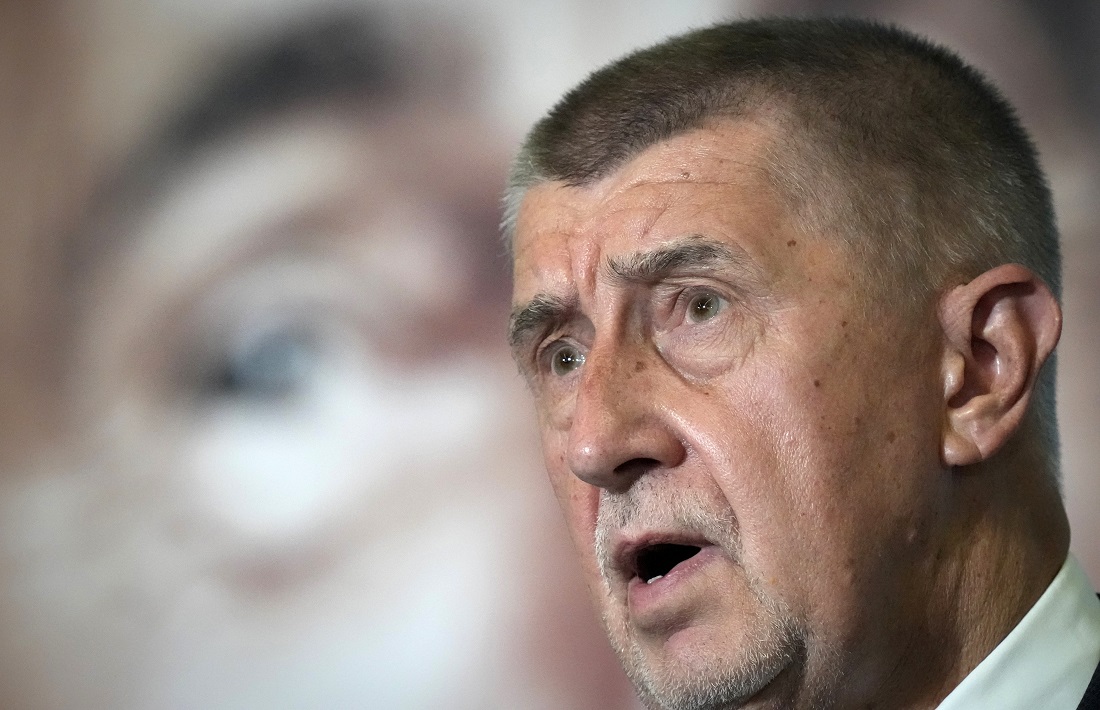One of the main topics of recent weeks is the new migration agreement of the European Union, which includes the principle of so-called mandatory solidarity.
According to the proposed reforms, all states of the Union are obliged to help countries overloaded with a large number of asylum seekers, either by accepting part of them or via financial or material support. The agreement has been pre-negotiated, but Poland and Hungary are opposed to its implementation, as other European politicians failed to convince them of a unified position at last month’s recent EU summit. Czechia, under the leadership of Prime Minister Petr Fiala, abandoned its objections to the policy and now supports the plan.
In recent days, the head of the ANO movement, Andrej Babiš, has been criticizing the cabinet for its participation in the agreement.
“The prime minister did not understand his role at all. He did nothing at all during (Czechia’s) presidency (of the EU Council), Babiš told the Echo24 newspaper. According to him, migration is once again beginning to be a substantial problem across the continent.
“Europe is changing. Do they not see how high the AfD (is polling) in Germany? Can’t they see how crime has increased in Sweden, in Germany? Look at what is happening in France,” added the former Czech prime minister.
Disagreements surrounding the agreement also affect relations within the Visegrád Group, which is now chaired by Prague. Hungarian Prime Minister Viktor Orbán and his Polish counterpart Mateusz Morawiecki came to the summit criticizing the reform. They persuaded their European colleagues to add a mention of unanimity to the conclusions of the summit, which, according to them, had been done in previous years. Petr Fiala, on the other hand, was in charge of approving the conclusions, according to which the country succeeded in introducing a mention of financial support to countries receiving Ukrainian refugees.
A sweetener for Czechia was the suggestion Prague could receive funds for the number of Ukrainian refugees it has accepted, which currently stands at around 528,000. “I am glad that other European states finally fully recognize this. It appears in the conclusions, but then these conclusions are not accepted because of the position of Poland and Hungary. So I consider that not a very good signal,” said Czech Prime Minister Petr Fiala after the meeting.
Fiala took to Twitter on Tuesday to criticize what he labeled “unconstructive and irresponsible” Hungarian and Polish opposition to the reforms, accusing them of “threatening the financial support that the Czech Republic should receive for accepting asylum seekers from Ukraine.”
According to Babiš, the government has resigned itself to relinquishing even more sovereignty. “I have repeatedly called on Prime Minister Fiala to ask for money from the European Commission within the framework of the presidency to pay the costs of Ukrainian refugees. He did nothing, and now he is fraudulently linking it to our position on the migration deal. Morawiecki and Poland, which received 1.6 million Ukrainians, says he is against it. Of course, because that is a loss of sovereignty,” Babiš stated.
Karel Havlíček, the first vice-chairman of ANO, also criticized Fiala’s position. “The prime minister’s timidity will not only cost us money, but with this step, he also threatens our security. It is a sad sight that the Polish prime minister is fighting more for us,” he wrote to the Echo24 editors.
According to ANO politicians, the Czech attitude will damage the entire V4. “The V4 was broken by Mr. Fiala. He did not understand at all the power of 65 million inhabitants, which had great results at the European Council,” claimed Babiš.
Fiala played down a potential split within the Visegrad Group this week. According to him, no one condemns the format, which includes the Czech Republic, Slovakia, Poland and Hungary, and cooperation exists in a number of areas. However, one cannot fixate only on this format, he added.
The prime minister also discussed migration on Tuesday with his Slovak counterpart Ľudovít Ódor. Fiala praised the improvement of cooperation with Slovakia regarding illegal migration. According to him, it is the key to preventing measures on common borders, which the Czech Republic took last year. According to Fiala, the Czech Republic and Slovakia agree on illegal migration, in that it is necessary to strengthen the protection of the external border of the European Union and improve the return policy.





